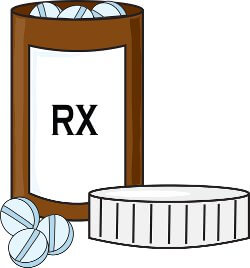How to Teach English – the 10 Most Helpful Pieces of Advice
If you have studied an ESL teaching course you were probably given a lot of advice on how to teach English by tutors, and by well-meaning friends, colleagues or strangers. Sometimes it's too much to take in so here is what I have found useful.
The 10 most helpful "How to teach English" pieces of advice:
1. You don't need to stick to a lesson plan.
This may come as a shock, but things will happen in your classes that you don't expect! Students will finish some activities too soon and take longer on others. Some things will be easy for them, and others that you expect them to understand quickly will be tougher. It is more important to be flexible than stick rigidly to something that isn't working.2. You don't need to know all the answers.
Another shock? I taught some classes where they asked me questions I couldn't answer right then. I told them I would find out for them, and I did. As long as you are honest, say you don't know, and then give the answers later, that's fine.3. Every student is different.
Now, that may be obvious, but so many teachers forget this when they are teaching and treat each student in the same way. That won't work. Get to know your students, their learning styles and their strengths and weaknesses. If possible, create a variety of tasks to suit different students in the class.4. You can't force students to learn, nor should you.
Teachers often feel responsible if their students don't progress. You can give them the tools for learning and inspire them to want to learn, but then it becomes the individual student's responsibility to learn, not only yours.5. Have a personality.
Be yourself. Let the students see you're a human being and not a teaching machine. Laugh at yourself if you make mistakes. Bring humor into the classroom.6. Be encouraging.
Error correction is essential in the right circumstances, but if you correct every mistake then you can easily destroy a student's confidence. Praise good work and never tell students they are stupid. Students who think they are stupid lose motivation.7. Balance your lessons between different skills.
A teacher who teaches 90% grammar is not helping the students. Communication skills, reading, writing, and vocabulary building are all as important as grammar. Possibly even more important than grammar!8. Keep an emergency resources box.
Include games, paper, colored pencils, extra worksheets, magazines etc. This will be invaluable if you need to add a new activity into the lesson or to extend something the students are working on.9. Give homework.
This is controversial! You can't force students to do homework, but if you give them the choice then they will feel encouraged and they can take responsibility for their learning. It is really important to mark the homework if you do give it, and not leave it on your desk for weeks.10. Have fun!
If you enjoy your lessons, then your students will too.These are the pieces of advice that helped me learn how to teach English and I'm sure they will help you too!
English Language Teaching Tips and Advice
Education advice
If your child has been labeled with a mental disorder, you may be feeling confused about your options for treatment, maybe even pressured by your child's school.
Well, you're not alone. More and more children and teens are quickly being labeled with mental disorders such as:
- Attention Deficit Hyperactivity Disorder (ADHD)
- Depression
- Bi-Polar Disorder
- Anxiety
- Oppositional Defiant Disorder
- Obsessive Compulsive Disorder
Teachers, counselors, and doctors may suggest medication (psychiatric drugs) to help your child control unwanted behaviors.
Alarmingly, drugs have quickly become the first defense for battling unwanted behaviors in children.
Alarmingly, drugs have quickly become the first defense for battling unwanted behaviors in children.
Before putting your child on any
 medications, you need to know the facts.
medications, you need to know the facts.Remember, you know your child better than anyone else and, ultimately, this is your decision.
Many of these medical conditions are often blamed on a "chemical imbalance" in the brain.
Before anything else, you should know that there are no medical or scientific tests that can prove your child has a chemical imbalance or mental disorder.
There are no blood tests, brain scans, or x-rays that can show you that your child has a "mental disorder." It remains a theoy.
The Risks of
Mental Health Screening
Studies have shown that between 80% to 95% of children would be falsely identified by such screenings and mislabeled as mentally ill.
This would harm thousands and thousands of Americans by giving them stigmatizing diagnoses which can follow them for the rest of their lives.
These labeled children are usually drugged, as well. Get the facts to protect your children.

Violence has been on the rise in our schools and classrooms. In addition, the suicide rate among children and teens is growing at a frightening speed.
In fact, suicide is currently the third leading cause of death among teens!
Is it a mental illness?
Too often, these violent acts are blamed
completely on a "mental illness."
Comments
Post a Comment